Growing up in an Indian household, it’s not uncommon to raid your pantry for an elaborate beauty ritual. Whether it’s a vigourous head massage with coconut or almond oil, a dead-skin sloughing homemade ubtan scrub, or a simple yogurt hair mask, chances are most women will have at least one such ritual in their skincare regimen. Something that’s been ingrained in them after years of watching their mother, grandmother, or aunt do the same.
I’ve seen my mother massage aloe vera or some fruit on her face a countless number of times, but until recently, it always seemed too “icky” for me. Now as I’m becoming more conscious of the ingredients that are in the products I use for my skincare routine, I find that I’m turning towards the very beauty rituals I ran away from.
In the past few years, the beauty industry too has experienced a shift in approach, and we’re now looking back at age-old beauty practices that have been handed down generations. There’s also been a significant push towards cleaner, natural ingredients – this is because most mass-produced everyday use produces are chock full of harmful toxins, chemicals, and synthetic ingredients that wind up causing more harm than good.
Lucky for me (and all of us!), India has an incredible culture of natural beauty rooted in Ayurveda. Our age old traditions revolving around skincare and beauty feature all-natural ingredients that are so pure, you could eat them. Literally – if you can’t eat it, your grandmom probably wouldn’t advise you to put it on your face!
Women all over the world have been practicing natural beauty rituals for centuries, and some like my mother have the most beautiful skin to show for it. There are plenty of natural ways to make your skin feel and look beautiful without needing to buy expensive and harmful chemical-laden commercial products, and here are some my favourite all-natural alternatives for your everyday skincare routine:
1. Toner
A good and inexpensive substitute to your daily toner is pure distilled rosewater. Rosewater has anti-inflammatory properties that can help reduce redness and soothe irritated skin, get rid of acne, dermatitis and eczema. It is a great cleanser and aids in removing oil and dirt accumulated in clogged pores.
To use rosewater as a toner, use it as a spray and mist it all over your face, or dab some onto a cotton pad and apply it on your cleansed face.
2. Face Mask
When it comes to natural face masks there are tons of options; think: good to eat, good for your skin, good for you. You can apply most fruits (lightly mashed up) directly to your face for a quick 5-10 minute mask. Here are a few recipes featuring some of our favourite beauty superfoods:
Honey
Raw honey was prized for its healing properties in ancient civilisations. In Egyptian and Ayurvedic traditions, honey was used to treat skin wounds and disorders. Cleopatra swore by milk-and-honey masks, so we’re inclined to believe it must be that good!
Honey has incredible antimicrobial properties, and is full of antioxidants. It’s good for unclogging pores, as well as hydrating parched skin. It’s no wonder that honey features in so many beauty and skincare products! To use it as a mask:
- Use one teaspoon of high quality raw honey and gently massage it over your entire face.
- Leave it on for about 15-60 minutes.
- Rinse with lukewarm or cool water and pat face dry.
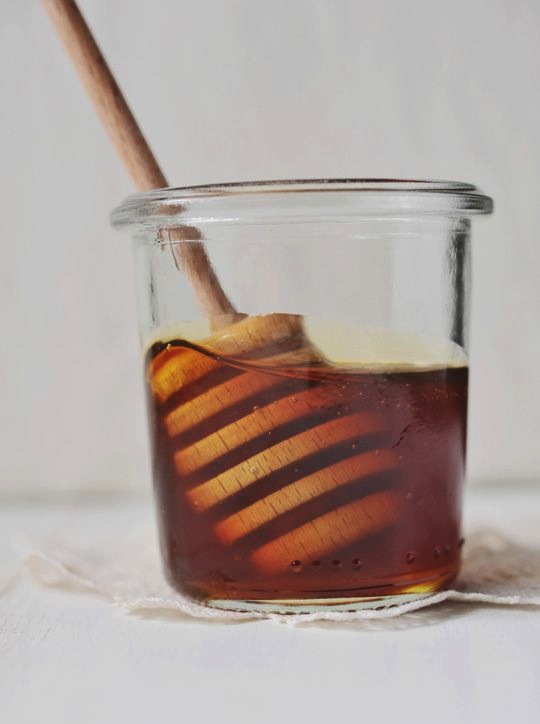
Turmeric
Is there anything that turmeric can’t heal?! This is a powerful anti-inflammatory ingredient that heals and soothes the skin, a favourite among Indian women since centuries. Using this in a mask will give your skin a beautiful glow.
- Mix ½ a teaspoon of ground organic turmeric powder with aloe vera or honey (and some yogurt, if you wish).
- Apply this on your face and neck in circular motions.
- Leave it on for 10 to 15 minutes. Rinse with plain water and pat dry.
Caution: Do not leave it on for too long as the turmeric will stain your skin.
Milk
Raw milk contains skin-friendly ingredients such as saturated fat, protein, calcium, and vitamin C. Mix it with honey’s moisturising and antibacterial properties and you have the perfect cocktail fit for Cleopatra.
- Mix milk, honey and a small amount of gram flour to form a paste.
- Apply all over the face and leave it on for 20 minutes. Allow the pack to dry.
- Rinse off with warm water and pat dry.
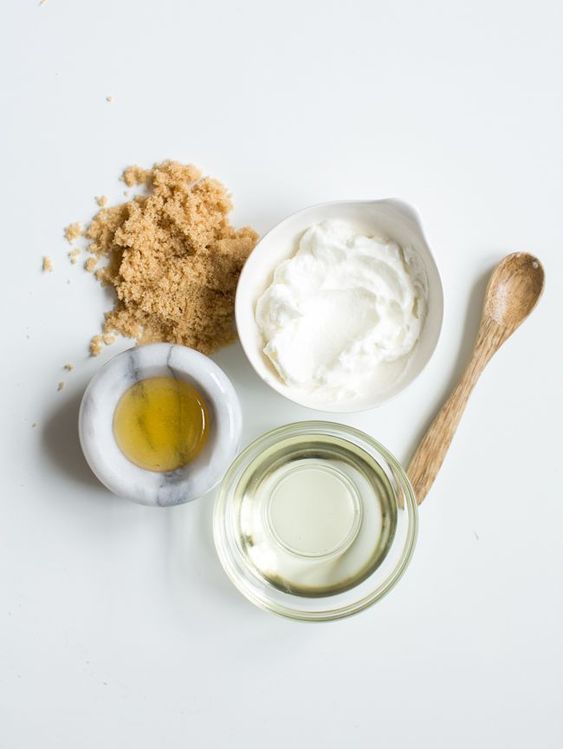
3. Scrub
Sugar & Salt Scrubs
It can’t get easier than a sugar or salt scrub – it literally takes minutes to make, and is a wonderful exfoliant that will leave you with smooth, hydrated skin. They are excellent as a lip scrub to help smoothen and moisturize any dry, flaky, chapped lips (esepcially before applying lipstick!); and are also great for soaking tired feet!
- Mix together ½ cup granulated sugar/coarse sea salt with a few tablespoons of organic coconut or olive oil.
- Add a few drops of your favourite essential oil blend if desired.
- Mix to combine. Use the scrub in gentle circular motions, and rinse with water.
Coffee Scrub
If you’re a coffee lover this is the perfect body scrub for you. The sand-like texture of coffee grounds makes for a great exfoliant. The grounds work to gently remove dead skin cells, to help rejuvenate and boost circulation. Exfoliants can also plump and tighten skin, also helping to temporarily reduce the appearance of cellulite. So save your coffee grounds next time you brew a cup, and make this quick scrub:
- Mix together 1/2 a cup of fresh ground coffee and 1/2 cup brown sugar.
- Add 1/2 cup coconut oil into the coffee mixture and optional 1 tsp. vanilla extract.
- Mix until well combined. Gently rub the scrub all over your body. Leave it on for 5-10 minutes. Rinse thoroughly.
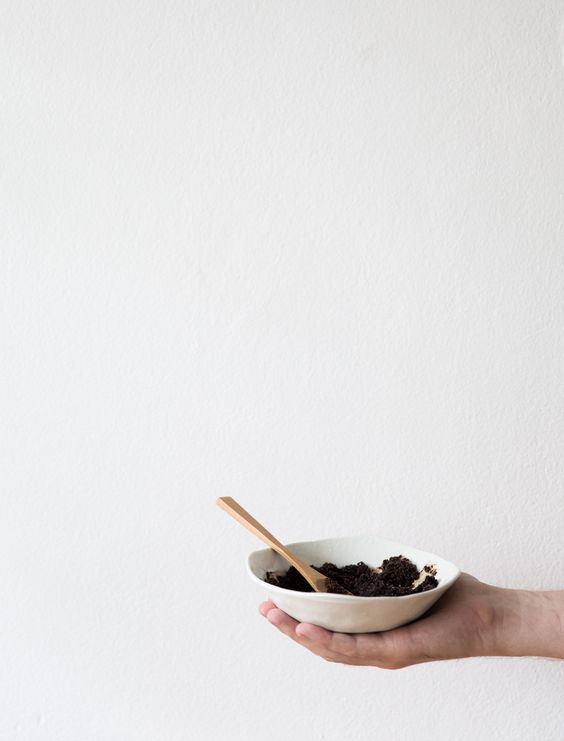
Ubtan
Ubtan is a powdered mix of Ayurvedic and natural ingredients. It’s a homemade paste which will make you shine from head to toe, sloughing off all your dead skin while moisturizing and hydrating at the same time. It’s what you need for soft, supple, glowy, skin. A traditional Ayurvedic ubtan is a mix of chickpea flour, ground turmeric, sandalwood powder, milk and rose water. It is a great way to exfoliate and cleanse, safe for use on both your body and face.
- Mix together chickpea flour, turmeric, sandalwood powder, milk and some rose water until it forms a paste. You could also add a teaspoon of yogurt to it for extra hydration.
- Apply it to your skin and wait for it to dry. Gently rub the dried paste off your body before rinsing with lukewarm water.
- Repeat 2x a week to see results.
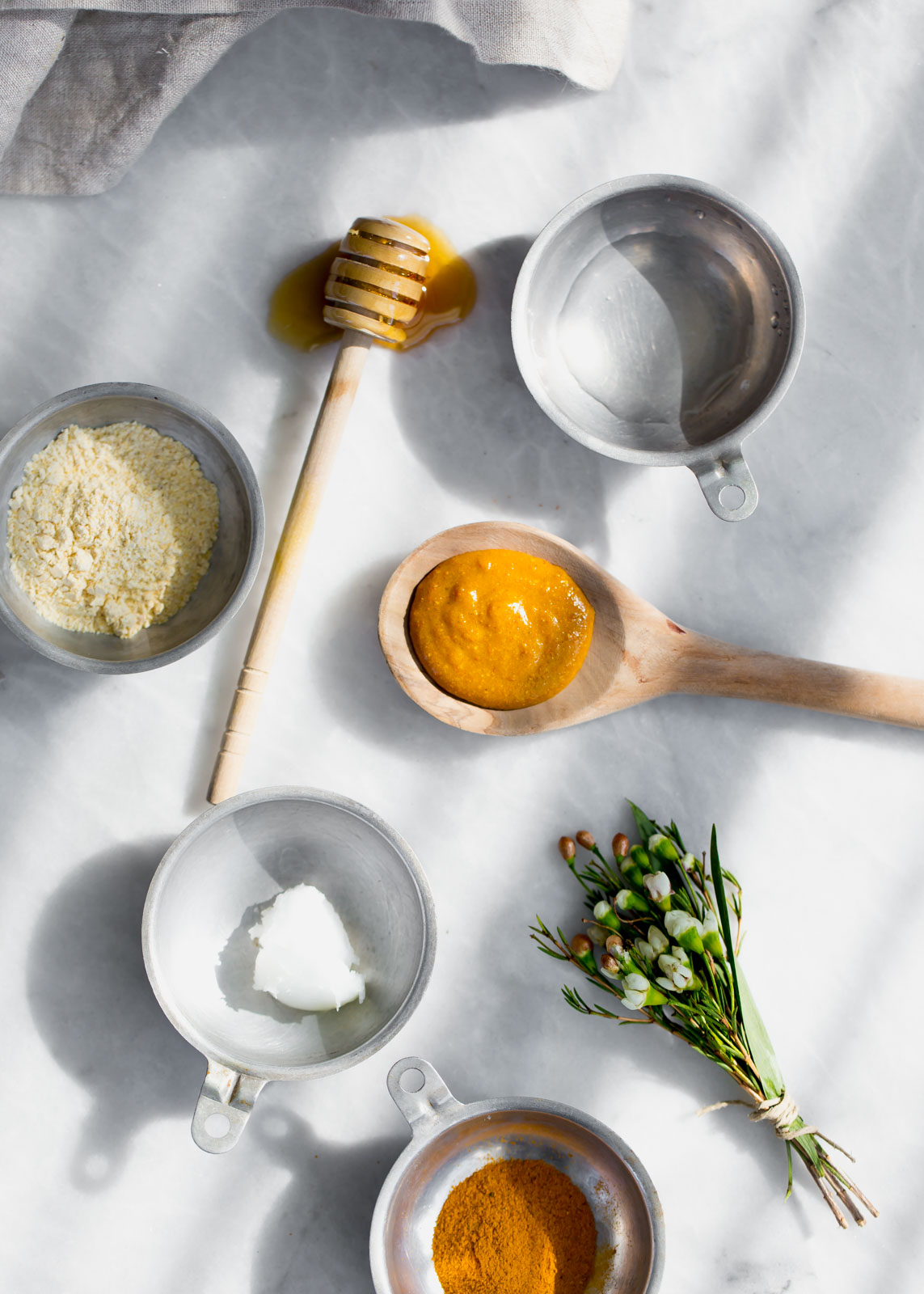
4. Moisturiser
You could use oils like olive oil, coconut oil or almond oil to nourish your body. It’s common practice in Ayurveda to choose an oil based on the season – coconut for summer, and almond / sesame for winter. Give your full body a luxurious oil massage before stepping into the shower, or use some post a bath for a leave-in moisturiser. Even a quick massage will do wonders for your lymphatic system by boosting circulation and lymph drainage.
If you’re looking for a moisturiser that doesn’t leave a greasy film, aloe vera gel is your best bet. It softens the skin without clogging pores and helps heal cuts and acne. It’s also wonderful to soothe sunburnt skin!
5. Lip Balm
Instead of spending a bomb on lip balms you could use something from your kitchen instead. Coconut oil nourishes your lip while also giving it a glossy look.
6. Face Wash
Contrary to popular belief, you can actually use oil to cleanse your face. The Oil Cleansing Method operates on the premise that oil dissolves oil. While you might be hesitant to use oil on your face, cleansing your face with oil is the most efficient and effective way to cleanse, soothe, and balance your skin. Most recipes recommended are a 1:1 ratio of olive oil and castor oil. Then increase the amount of olive oil for dry skin or castor oil for oily, acne-prone skin.
Helpful things to note when using natural ingredients in your skincare practice:
- It’s imperative that you use absolutely the purest quality of ingredients. For example, common store bought turmeric is often laced with inferior powders or synthetic colors to make it stain brighter yellow, which won’t go down too well with your skin. Same with honey – packaged honey is often laden with sugar. Choose organic, pure, quality ingredients for best results.
- If you’re allergic to any food items, it’s best avoided even in your skincare ritual.
- Some of these natural ingredients, though wonderful, might be too harsh for your skin if you’re sensitive. Do a patch test on your arm before trying anything new on your face to rule out chances of breakouts or reactions.
- Exercise caution when using scrubs, and don’t go overboard. While scrubs are great for exfoliation, removing dead skin, and boosting lymphatic circulation, overdoing them might do more harm than good by stripping down your skin of its natural oils and making it too dry.
- When in doubt, or if you feel itchy or red after using any of these recipes, stop use immediately! Again, your judgement is best when it comes to your body 🙂

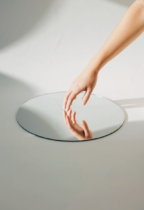

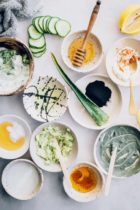

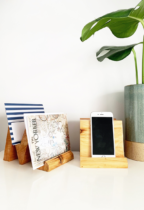
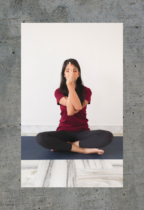
Thank You so much for sharing such a nice blog and your knowledge with us. Proper skincare is important because our skin is the largest barrier against infection that we have. Keeping our skin healthy and moist helps keep this barrier strong. When the skin gets dry or irritated by harsh soaps, cracks in the skin can occur.
Very useful tips.. definitely will try this out!!